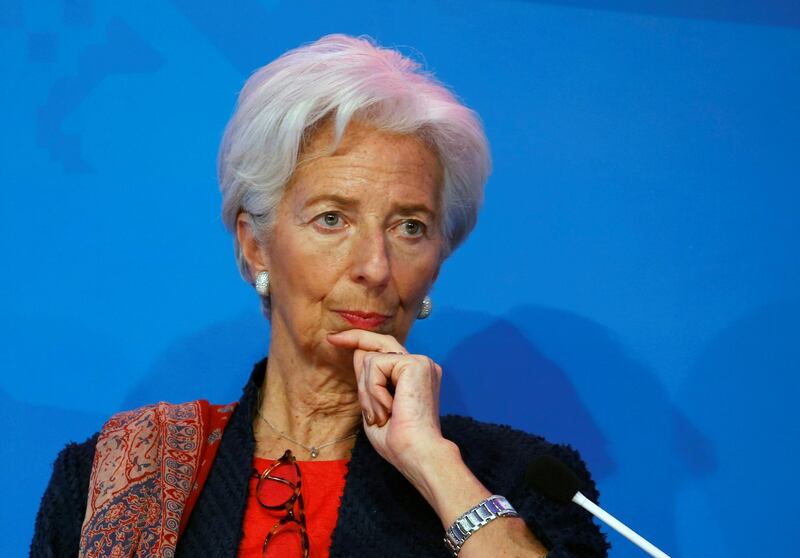No one emerges victorious from a trade war, International Monetary Fund chief Christine Lagarde said on Wednesday, warning that the economic impact of US import tariffs would be serious if other countries respond with their own barriers.
On Tuesday, US President Donald Trump reiterated his plan to slap big tariffs on steel and aluminum imports, warning the European Union it would get hit with a "big tax" for not treating the United States well when it comes to trade.
"The macroeconomic impact would be serious, not only if the United States took action, but especially if other countries were to retaliate, notably those who would be most affected, such as Canada, Europe, and Germany in particular," Ms Lagarde said on French radio RTL.
Mr Trump's comments have sparked cries of foul play from US trading partners and warnings from US lawmakers and businesses of the potential for a tit-for-tat trade war that could hurt the US economy. Mr Trump has said the US could win such a war, since it was running such a large trade deficit.
"In a so-called trade war, driven by reciprocal increases of import tariffs, nobody wins, one generally finds losers on both sides," she said, adding that she hoped that Mr Trump would not implement the tariffs threat.
_______________
Read More:
Gary Cohn resigns as Trump economic adviser amid trade dispute
[ Trump’s trade restrictions could damage US economy, IMF warns ]
China says it may hit back at proposed US tariffs on imported steel, aluminium
________________
Mr Trump's top economic advisor Gary Cohn, seen as a voice for Wall Street in the White House, said he would resign after he lost the fight against Trump's plans for hefty steel and aluminum import tariffs.
However, Ms Lagarde indicated that Trump might have a case for threatening tariffs, saying there were "a few good reasons" to protest against the current situation.
"There are some countries in the world that do not respect the World Trade Organisation agreements, and which impose technology transfers. China is a case in point but it is not the only country with such practices," she said.
Ms Lagarde called international trade an engine for growth, innovation and competitiveness and cautioned that any threat to trade was risky for world growth.
"If world trade were jeopardised by such measures [tariffs], they would become a vector for lower growth and a slowdown of commerce. The impact on growth would be a formidable," she said.
Ms Lagarde said she had the impression that the White House had not thought through the risks of retaliation.
"It looks like two camps have fought over whether or not to implement such measures and that one of the camps won the upper hand," she said.
The former French finance minister also warned against growing income inequality.
"The worsening of excessive inequalities is a barrier for durable growth," she said.
Ms Lagarde said governments need to put fiscal, social, educational and health policies in place to fight inequality.






